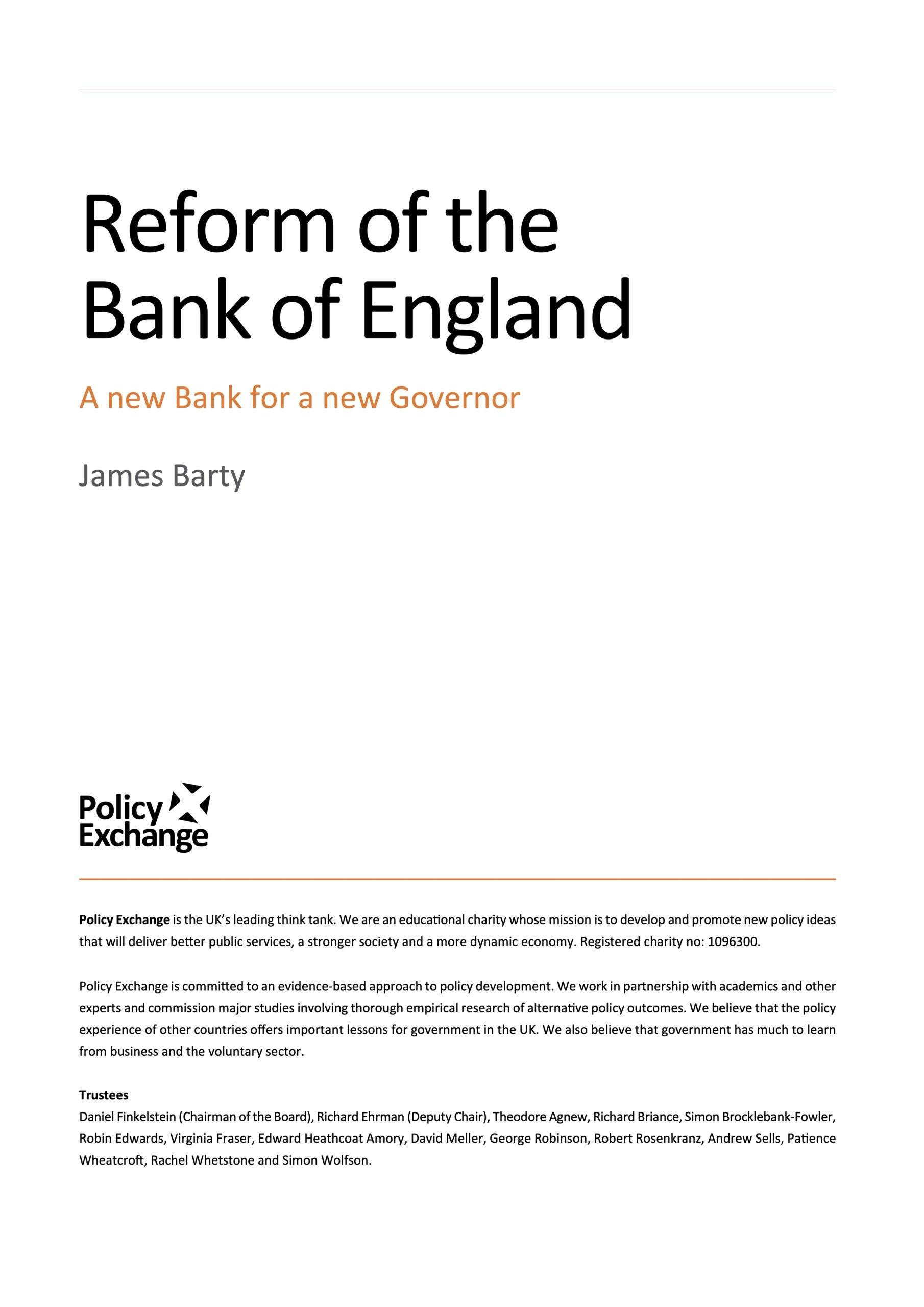
Reform of the Bank of England: A new Bank for a new Governor
Reform of the Bank of England says that the current Governor of the Bank of England, Sir Mervyn King, paid too little attention to financial markets in the lead up to the financial crisis of 2007. He saw the Bank’s primary task as meeting its mandate on monetary policy, a decision which meant that it was not prepared for the impact of the freezing up of the financial markets and the collapse of some of the UK’s biggest banks.
The report argues that without major reform to the Bank, the new financial regulatory regime currently going through Parliament risks being as flawed as its predecessor.
It refers to the Bank of England’s 2007 Financial Stability report which said, “The UK financial system remains highly resilient, the banks well capitalised and high profitable.” This report was produced five months before the collapse of Northern Rock. The same report also said that strong profit and growth revenue among Large Complex Financial Institutions (LCFIs) supported their continuing resilience even though 18months later RBS was taken over by the government.
It says that the Bank of England failed to understand the enormity of the crisis when it was in full flow. Referencing the fact that the Monetary Policy Committee (MPC) was still advocating higher interest rates a year after the crisis had started, the report suggests that a better understanding of the markets by Bank of England staff would have led to some of the worst problems being avoided.
The lack of understanding of financial markets has led to further mistakes in the aftermath of the financial crisis with too little support for the banking system and too much focus on quantitative easing. As a result the Bank has sought to drive capital requirements and liquidity ratios without considering the impact on credit. The net outcome is that new lending and money supply has actually fallen over the last two years.
The report argues that merely concentrating financial regulation under one roof at the Bank is not a solution to the previous problem, unless the flaws in the Bank’s culture and structure are rectified.
It recommends:
- The new Governor should take on a Chairman-type role overseeing the Bank as a whole. The Deputy Governors would become CEOs of their areas and would have responsibility for all operational decisions
- The Deputy Governors should sit on each other’s decision making bodies. The Financial Policy Committee (FPC) and Monetary Policy Committee (MPC) should also meet once a quarter to ensure that policy decisions are better coordinated
- Both the FPC and MPC should have a majority of external members so the internal Bank team can be outvoted
- The new Governor should hire people with financial markets experience across the Bank, including secondments from the City and people employed on short term contracts to attract those not interested in a full time career at the Bank
- The new Governor should be given a new mandate to support the government’s growth policies by focusing on increasing credit flow to the economy

